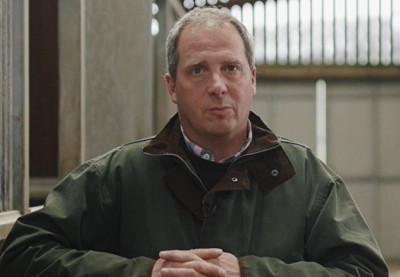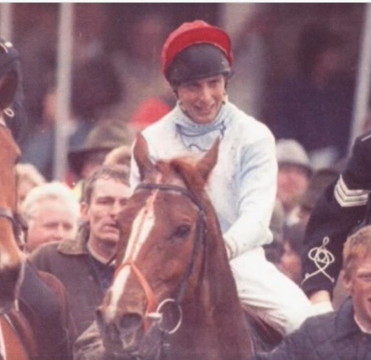Nigel Hawke has contributed to racing in more than one way. Initially, he was a jockey, where he had plenty of success until a career-ending injury, and later in life as a trainer.
An inventive jockey, who cited too many jockeys in the UK, which led him to ride in both New Zealand and Russia during the summer months in order to get enough rides to survive. Born on January 13, 1966, Hawke won the 1991 Grand National aboard Seagram, a winning horse that is known for being a coincidence winner of the race, named the same as the sponsors that year.
However, that doesn’t tell the whole story, one of guts, determination, and a great finishing drive from Hawke to get his mount over the line in front. Injury prevented us from seeing more from this jockey, and he ended the riding part of his career with just two rides in the Grand National, both on Seagram, in 1991 and 1992, before injury forced early retirement a year later in October 1993.
Nigel Hawke Grand National Wins
- 1991 - Seagram trained by David Hawken Barons
Full Results
| Year | Horse | Result | Prize Money | Trainer |
|---|---|---|---|---|
| 1992 | Seagram | Fence 27 - Pulled Up | - | David Hawken Barons |
| 1991 | Seagram | 1 | £90,970 | David Hawken Barons |
The 1991 Grand National On Seagram

The first thing that many people will tell you about the 1991 Grand National is about the name. Seagram, the winning horse, was named the same as Seagram, the sponsor, a Canadian distillery. However, while the story is a nice one, it doesn’t give any credit to the winner and jockey for what they did on the run-in.
Going into the race, Seagram was fancied to go well and be amongst the top few runners in the betting, but the talk was all about Garrison Savannah. He had won the Cheltenham Gold Cup just three weeks prior and was aiming to become just the second horse to win the double in the same year and the first to do it in more than 50 years.
That was the fairy tale story, and it’s not nice being the one to deny that from happening, but Seagram and Nigel Hawke were the ones to do that. Both horses were going well, and in a group of potential winners who were catching the eye, but it was Garrison Savannah that kicked clear first and went to win the race.
He was in the lead with two fences to go, and he jumped three lengths clear at the final fence. A clean jump there, coupled with gaining a little bit more momentum, left him five lengths clear as he started to go up the run-in, and there appeared to be one winner, history was about to be made at the Aintree racecourse.
All of a sudden, Garrison Savannah began to tire, and the horse behind him was Seagram. Could he get back up and challenge the leader, who was slowing down? He certainly could, Hawke commented after the race, saying that at the final fence, he thought he was destined for second place but was quick to get going when he saw he had a chance to overtake the leader.
As the line drew closer, Garrison Savannah was almost at walking pace, while Hawke and Seagram had their second win and were coming strongly. In the end, the pair came out on top, being the ones to stop fans in attendance from seeing history, but at the same time, taking the world’s most famous race.
They didn’t just get up and win by a close margin either, they went past the leader and won by an easy five lengths in the end. It was a real showing of not giving up by both the horse and jockey, they kept going until the end, riding out strongly, and were given an opportunity to grab the lead and win the race, which they did in style.
Injury Cuts Short Riding Career

Unfortunately, the riding career of Nigel Hawke was cut short due to a bad injury. Hawke had just two rides in the race in terms of the Grand National itself, and these both came aboard Seagram. After winning in 1991, the pair reunited for another attempt in 1992, but at fence 27, the horse was pulled up by Hawke.
It was a year after this when Hawke should have been trying to really build and kick on after his association with a Grand National winner, where his riding career came to an end. In October 1993, Hawke suffered a bad fall at Newton Abbot. He was taken to hospital from the track and remained unconscious for a week. When he eventually woke up, Hawke had no recollection of the day at Newton Abbot other than arriving in the car park before racing, everything after that was gone.
He eventually made enough progress to be able to leave the hospital, but his time as a jockey was over. A few years later, the itch to get back into racing was too strong, and training was where Hawke would make his return.
Move Into Training
In 1998, Hawke took out his training license, operating from a base in Devon, where he would begin life looking to get back into racing at the top table. After spending time as a jockey, this would take him into the sport from a different angle but would give him the chance to get back to horses, something he loved.
He is hoping to repeat the success of winning the Grand National, but this time as a trainer, aiming to be one of the few people who have both ridden and trained the winner of the world’s biggest race.
